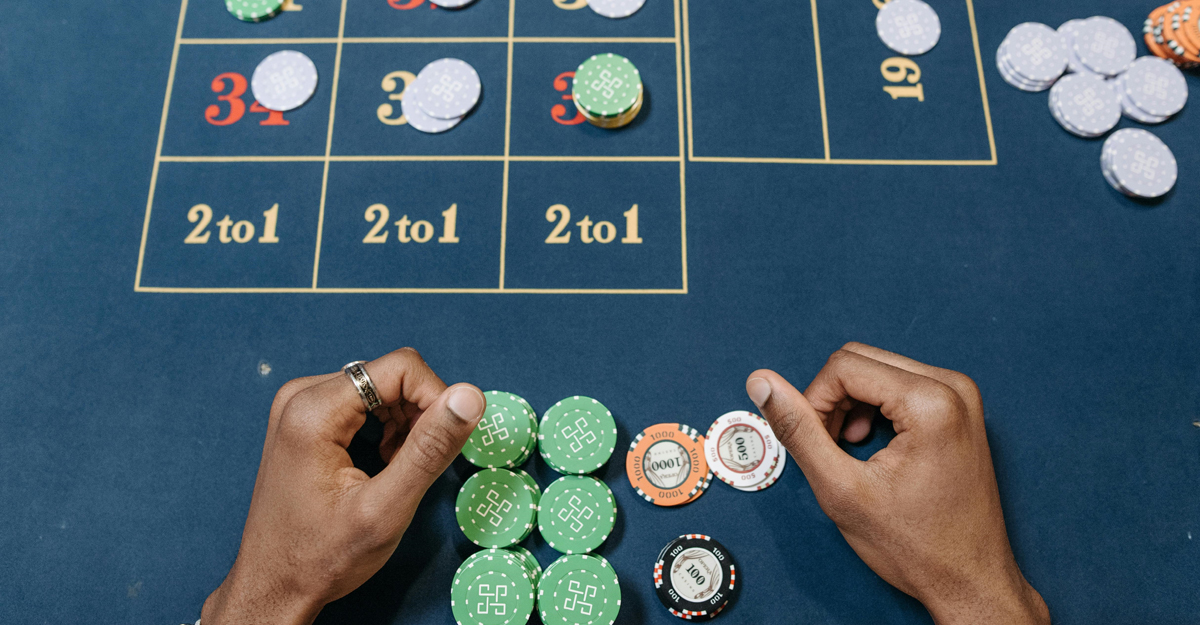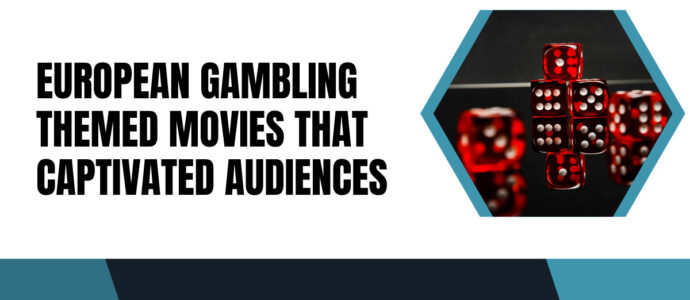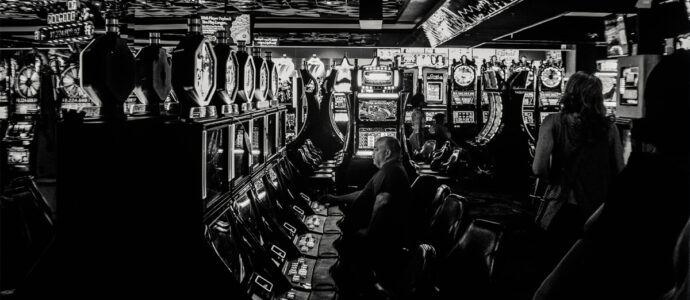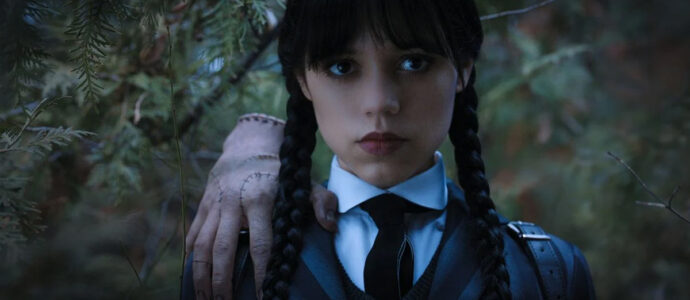Gambling: it stirs the pulse, doesn’t it? Consider the allure of high stakes played out on the silver screen or through episodic dramas. This fascination isn’t by chance; movies and TV shows have long used the heart-racing suspense of gambling to hook viewers. Think Casino Royale or The Sopranos, where fortunes are made and lost in moments — all while an audience watches, riveted.
Yet, how accurately does this world translate from script to slot machine, poker table to public perception? Let’s shuffle through the scenes of smoky rooms and clinking chips to uncover just that. The relationship between gambling’s pop culture tapestry and its real-world counterpart is complex – a narrative rich with bluffing characters and audience bets on authenticity.
The Stakes on Screen: A Look at Iconic Gambling Scenes
Cinema has long known the power of a well-placed bet. From James Bond’s icy composure at the baccarat table to the frantic energy of Rounders, filmmakers have dialed into the tension that gambling naturally provides. What is it about these scenes that captivates audiences? It may be more than mere chance or cinematic flair.
Take, for example, Ocean’s Eleven. Here, gambling is not just a backdrop but a pivotal plot point around which characters orbit and evolve. Danny Ocean’s crew meticulously plans a casino heist, blending actual gaming knowledge with Hollywood’s dramatic license. These scenes offer viewers insider-like access to a world where strategy and luck collide with high stakes. It’s no surprise that this particular series continues to spawn sequels.
Yet, beyond entertainment, such depictions shape our understanding of what it means to gamble. Are we being dealt truth or fiction? Contrast this with The Gambler, which paints a grittier picture of addiction and desperation — far from the glamorous lifestyle often associated with casino culture.
These narratives invite us to consider the duality of gambling in media: as both an escape into opulence and thrill-seeking behavior but also as cautionary tales revealing darker consequences. They serve as case studies for how tension is artistically crafted (think character arcs meeting financial cliffs) and resonate through their stark or stylish presentation of risk-taking – asking us subconsciously what we might wager in pursuit of victory or redemption.
The Reality of the Wager: From Reel to Real
As viewers, we often suspend disbelief for the thrill of a narrative. But when the credits roll, how does fiction measure up against reality? This is where a true gambler’s tale begins. Real-life players engage with odds that are less forgiving than those scripted in 21 or “The Cincinnati Kid.” It’s not just about knowing when to hit or stand, but also managing one’s bankroll and understanding the probabilities at play.
The narratives we consume through pop culture inevitably color our perception of gambling. We might envision a high-roller as someone akin to The Mirage frequenter Mike McDermott from Rounders, deftly reading his opponents and playing each hand with calculated precision. However, outside Hollywood’s lens, even adept gamblers face the immutable house edge — an opponent no amount of skill can consistently overcome.
Now consider Delaware — dubbed ‘The First State’ not only for its historical precedence but also for being one of the first to legalize online gambling. Pioneering bettors within this region mirror more closely the stark realities rather than cinema’s exaggerated lore. Delawareans who frequent local casinos exhibit a blend of discipline and daring that most movies gloss over. For those intrigued by the state’s unique gambling landscape (or seeking wisdom on its legal frameworks), check out delawaregambling.info for everything there is to know about gambling in Delaware.
This real-world gaming ethos contrasts sharply with showy movie scenes yet offers its own form of drama. The stakes may not always include Hollywood heists or mafia showdowns, but they involve real decisions with tangible outcomes. Common players may not have a soundtrack to underscore their big wins or losses, but the impact resonates in their daily lives just as profoundly.
The House and Human Nature: Unpacking the Gambler’s Psyche
There lies an unwritten chapter in every gambler’s book, nestled between hope and pragmatism. This silent narrative explores why gambling, despite its inherent risk, remains a staple in both real life and fiction. It touches on something deeply human — our natural inclination towards risk for the potential of reward.
In classic films like The Sting, we see complex cons where not only money but also trust is wagered. These plotlines delve into psychological intricacies that captivate us: how far can cunning go against chance? Similarly, TV shows like Breaking Bad reveal gambling as a metaphor for characters’ willingness to stake everything for their endgame.
Translating this to real-life scenarios, it becomes clear that whether it’s a carefully strategized poker face or the spontaneous pull of a slot machine lever, gambling taps into our psyche. It can manifest as a quest for control in an uncertain world — each decision at the table reflecting larger life choices.
So what compels us to keep playing the game? Whether driven by thrill-seeking, escapism, or merely the social camaraderie found around card tables and roulette wheels, this question probes deep under our collective skin. It’s not just about winning or losing money; it’s about engaging with fate, testing one’s mettle against odds that are often inscrutable.
These portrayals remind us that behind every bet is a story – one of ambition or greed. And the lessons we learn from them can be applied to our own lives as well, which is really the point of all great art. It makes us feel something, while also giving us food for thought that lingers long after the credits have scrolled to completion.
The Last Word
In essence, the reel of gambling in the media spins a tale of high risks and rewards, weaving narratives that reflect our own attractions and anxieties. It forms a symbiotic relationship with our reality, mirroring human nature’s complex dance with chance.
As the final chip is cashed in, what remains is a mosaic of lessons from both screens and seats around the felt tables — each play an intimate study of character, fortune, and the ever-present gamble of life itself.










